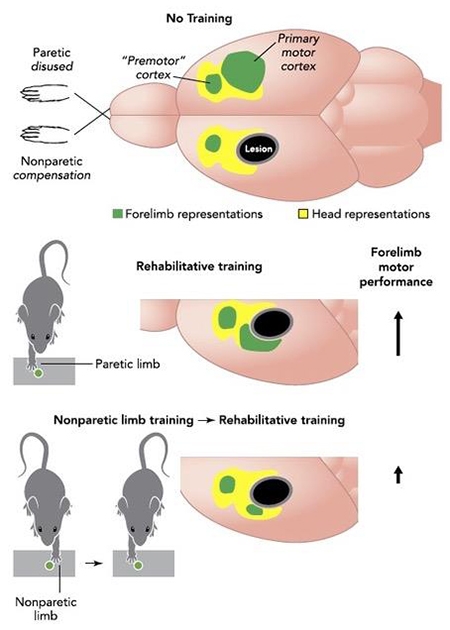You are here
Experience-driven Competition in Neural Reorganization After Stroke
EVENT:
Weekly Seminar | Not Open to the PublicWho Should Attend:
ResearchersEvent Flyer:
Speakers
Abstract
Stroke instigates a prolonged period of neuroanatomical reorganization that is extraordinarily sensitive to behavioral experience. This talk focuses on findings from rodent stroke models that support critical roles for experience in shaping this process of reorganization. Behavioral interventions, such as rehabilitative training, can interact with regenerative responses to drive brain reorganization in functionally beneficial directions. However, "self-taught" compensatory behaviors may normally dominate experience-driven patterns of reorganization, and they can drive neural reorganization patterns that are suboptimal for outcome and competitive with those mediating rehabilitative training efficacy.

Publications
J Neurosci. 2018 Jan 3;38(1):93-107. doi: 10.1523/JNEUROSCI.1295-17.2017. Epub 2017 Nov 13.
Nat Rev Neurosci. 2017 May;18(5):267-280. doi: 10.1038/nrn.2017.26. Epub 2017 Mar 23.
J Neurosci. 2015 Jun 3;35(22):8604-10. doi: 10.1523/JNEUROSCI.0829-15.2015.

